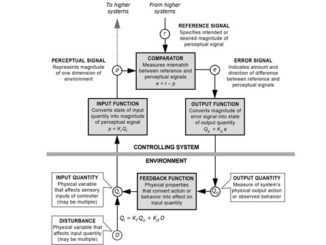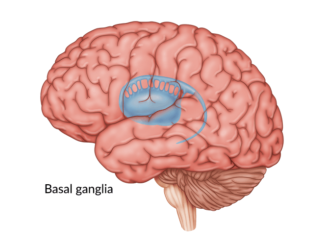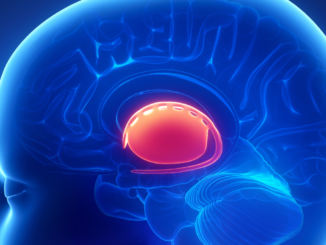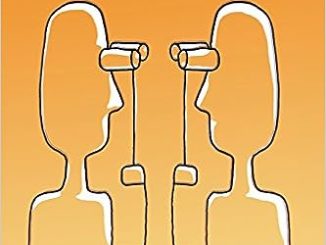
Economics & Marketing
To manage a successful business, you need to know what people want, how your business is perceived, and how to deal with people. It’s ripe for a PCT approach! […]

To manage a successful business, you need to know what people want, how your business is perceived, and how to deal with people. It’s ripe for a PCT approach! […]

Perceptual Control Theory (PCT), a scientific theory developed by William T. Powers (1973) posits that behavior is the control of perception. […]

PCT is emerging as a force in robotics. PCT lends itself well to the fields of artificial intelligence and robotics because it provides an exact mathematical framework to model psychological processes. […]

In explaining how living things control their perception, PCT is clearly highly relevant to psychology. Contemporary articles are making the case to the wider establishment that closed-loop, circular causality is much closer to how living systems actually function than the approach researchers still use. […]

When people find themselves struggling control has been disrupted. It is the loss of control not control, therefore, that is the problem when people are psychologically distressed. […]

PCT takes a strongly scientific approach to human nature. It proposes that people and other living systems are purposeful – and that the systems that are responsible for purposeful action are explainable in mechanistic terms. […]

At present, the application of PCT to Law is at its early stages. Hugh Gibbons is one exception. He has co-authored a biological model of human rights based around the tenets of PCT and he also illustrates a case using PCT in this book, “The Death of Jeffrey Stapleton”, published online. […]

A comprehensive introduction to PCT and its implications for the social and physical environment, on a global scale, are described in an online article by Kent McClelland. There are also a number of online articles that relate […]

Sociology involves understanding how people behave in groups, including how they communicate and interact with one another. PCT provides a way to understand how people’s goals operate when in groups, and we can use computers […]

Martin Taylor Note: This salute to William T. Powers, the creator of Perceptual Control Theory (PCT), was posted to the CSGNet discussion list by Martin Taylor on September 15, 2016 and is posted here with […]

Timothy A. Carey and W. Thomas Bourbon https://journals.sagepub.com/doi/abs/10.1177/10534512060420010201

Henry H. Yin (2016) https://journals.sagepub.com/doi/full/10.1177/1073858416654115

Heather C. Bell, Greg D. Bell, […], and Sergio M. Pellis (2015) https://journals.sagepub.com/doi/full/10.1177/1059712315607606

Joseph W. Barter, Suellen Li, Tatyana Sukharnikova, Mark A. Rossi, Ryan A. Bartholomew, and Henry H. Yin (2015) https://www.researchgate.net/profile/Mark-Rossi-5/publication/272165203_Basal_Ganglia_Outputs_Map_Instantaneous_Position_Coordinates_during_Behavior/links/54dcbf590cf25b09b912c829/Basal-Ganglia-Outputs-Map-Instantaneous-Position-Coordinates-during-Behavior.pdf

Richard S. Marken (2014) The core of the book are six papers by Dr. Richard S. Marken which have been published in peer reviewed journals over the past decade explaining why Perceptual Control Theory (PCT) […]

Bell, Heather Christine Journal: International Journal of Comparative Psychology, 27(2)Permalink: https://escholarship.org/uc/item/0ch4g2x6ISSN 0889-3675Publication Date 2014DOI 10.46867/ijcp.2014.27.02.02 Copyright InformationCopyright 2014 by the author(s).This work is made available under the terms of a CreativeCommons Attribution License, available at […]

Henry H. Yin

Timothy A. Carey (2013) Article Link: https://www.thelancet.com/journals/lancet/article/PIIS0140-6736(13)62214-X/fulltext Article Info Publication History Published: 26 October 2013 Identification DOI: https://doi.org/10.1016/S0140-6736(13)62214-X Copyright © 2013 Elsevier Ltd. All rights reserved. ScienceDirect Access this article on ScienceDirect

Avraham Saig,* Goren Gordon,* Eldad Assa, Amos Arieli, and Ehud Ahissar 14022 • The Journal of Neuroscience, October 3, 2012 • 32(40):14022–14032 https://www.jneurosci.org/content/32/40/14022.short

Assembled by Sarah Alsawy & Warren Mansell (August 2012) Historical and Philosophical Context lntegrative & Transdiagnostic Theoretical articles PCT, Core Processes, Goal Conflict and Mental Health – Research Studies Method of Levels – lntroductory articles […]

Mark Lazare (April 2012)

Emma-Jane Greig, & Warren Mansell (2011)

William T. Powers, Bruce Abbott, Timothy A. Carey, David M. Goldstein, Warren Mansell, Richard S. Marken, Bruce Nevin, Richard Robertson, & Martin Taylor (2011)
Copyright © 2022 iapct.org